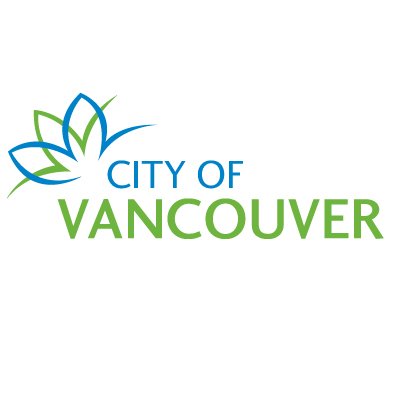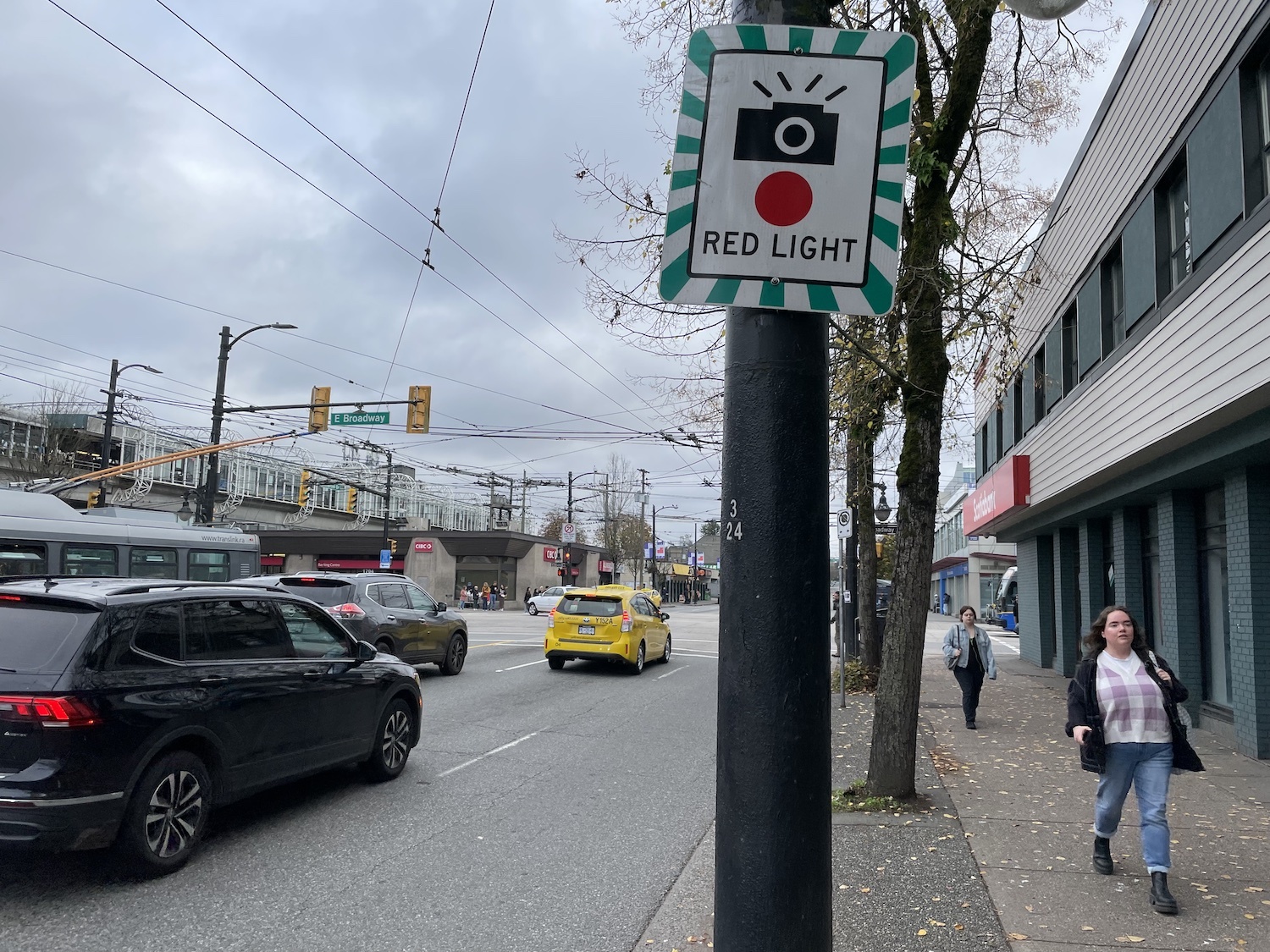- cross-posted to:
- [email protected]
- cross-posted to:
- [email protected]
Hello Vancouverites, you may have heard about an upcoming motion in Vancouver council that calls for the installation of speed and red light cameras at more of the city’s high-crash intersections. On average there are 22 car crashes resulting in death/injury in the city every day. This is a public safety and public health crisis, and automated enforcement with speed and red light cameras is an effective and efficient way to make roads safer.
The motion will be considered on Wednesday, November 1st. You can help by expressing support either by emailing or speaking to council. Here’s our guide for doing so: https://visionzerovancouver.ca/intersection-safety-cameras/
Thank you for taking action for safer streets. Share the page and encourage other people you know to do the same!
Red light cameras cause more rear-ender accidents. The numbers are there. They’re just a cash grab.
Speed cameras don’t stop speeders. They’re just a slimy cash grab.
Kudos for relabeling them as ‘traffic safety cameras’ . It reduces the people thinking critically and makes it sound oh, so good for the people.
Yup. If you want safer streets, you need to reduce their size/the amount of lanes and add physical obstacles like speed bumps, roundabouts, and bollards.The plus side of the above is using that newly opened space for bike lanes or dedicated transit.
Its much safer and much better for everyone, but the reason it doesnt happen is because it costs money instead of making money like red light and speed trap cameras.
Ah definitely, if there was any chance of implementing any of those changes to any of the streets mentioned in the article, I’m all in as well. I don’t want the perfect to be the enemy of the good, though. The current city council has zero chance of any significant redesign, but cash-grabbing law enforcement should be an easier win that could already save some lives until we get better roads.
The issue is more that this is neutral being the enemy of good, these cameras don’t actually help, but they let the city say they are trying to address the problem without actually addressing the problem.
these cameras don’t actually help
Don’t they, though? Most studies seem to agree they reduce fatal crashes and other types of injury.
The numbers are there. They’re just a cash grab.
Where? Seriously, all research I came in contact with shows they are effective in changing driver behaviour long-term.
EDIT: Found this https://www.sciencedirect.com/science/article/abs/pii/S0001457513000572?via%3Dihub
rear-end collisions were found to increase by 39%
But also from the same study:
- Meta-analysis finds that RLC decrease all injury crashes by 13%
- Rear-end crashes increase, only at RLC intersections
- RLC are most effective when not all RLC-intersections are signposted.
So my understanding is that it’s even more effective when it’s not signposted (which is even more of a cash grab?), and although it increases rear-ends, it decreases injury crashes. That’s a net positive to me.
Also lots of studies referenced here: https://www.iihs.org/topics/red-light-running#effectiveness-of-cameras
And the conclusion:
Some studies have reported that while red light safety cameras reduce front-into-side collisions and overall injury crashes, they can increase rear-end crashes. However, such crashes tend to be much less severe than front-into-side crashes, so the net effect is positive.
The only speed cameras I feel are a good idea are ones I talked about in another comment. Ones that instead of issuing a ticket, they turn the light ahead red in time to catch the speeder.
I don’t think red light cameras are all thateffective. That’s usually a case of mistimed traffic lights and if they got an engineer out there to properly time them less people would be running yellows.
If we are talking about fatalities there are 2 situations you need to avoid. The most deadly crashes are not rear enders but t-bones in the case of vehicle collissions (sorry corsicanguppy but I’d rather people rear end each other than t-bone) and pedestrian collisions where a vehicle turns right on red into them.
So the best things to do are make sure the intersections are timed correctly so people do not run the lights, and improve the pedestrian safety through something like safer instersections where cars stop further back and can see the pedestrians much more clearly or by banning turning right on red, or ideally both.
I don’t think red light cameras are amazing either, It’s a stopgap until we get better roads, and I don’t love stopgaps. But they do have some positive effects which outweigh the costs, which is enough for me.
Like many things urban planning, we either do something now to reduce injuries a bit… or we keep fighting for years until we can do a bigger change to attack the problem more meaningfully. These cameras pay for themselves so I don’t see why not do something right now AND keep pushing for greater changes long term.
I do agree, we need more creative ideas to reduce dangerous road behaviour…
The Feu de ralentissement éducatif project in Brossard, Québec I thought was a good idea, but had to be scrapped days after as the provincial ministry of transport wasn’t consulted and the direction to “slow down on red” would be confusing.
I would imagine that if the light turned red, it’s pretty self explanatory. This smells like people just wanting to do whatever they want at whatever the cost to whomever may have to pay it.
I just want to add, as someone not from Vancouver but has driven there, the issue is absolutely not speeding, it’s using goddamn cell phones while driving. I’m at the point where I genuinely believe it should be a dangerous driving offence. I live in Sask, we definitely do not have a speeding problem, it’s a distracted driver problem.
IIRC distracted driving is 4 points, which is more the 3 you get for speeding, disobeying stop sign or red light at intersection.
I don’t disagree that distracted driving is a big issue, but red light cameras have been shown to decrease injury related crashes at dangerous intersections; so until we’re able to redesign the intersection I think we’re better off having some extra monitoring and enforcement. Mitigating one problem doesn’t stop us from working on other things as well.
I’ll be honest, I thought about putting a qualifier at the end about how I’m not really talking about light cams but speeding cams.



